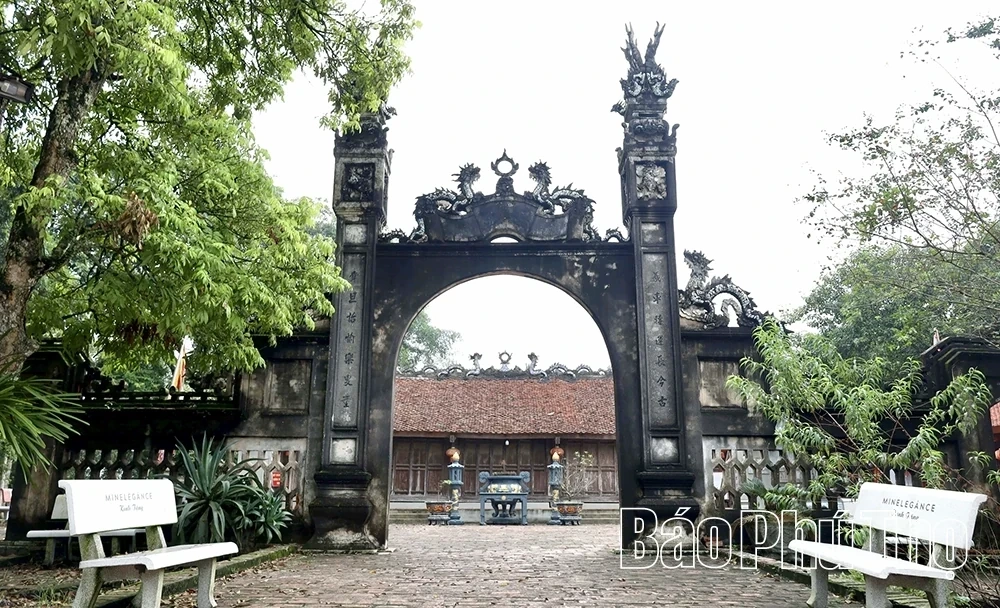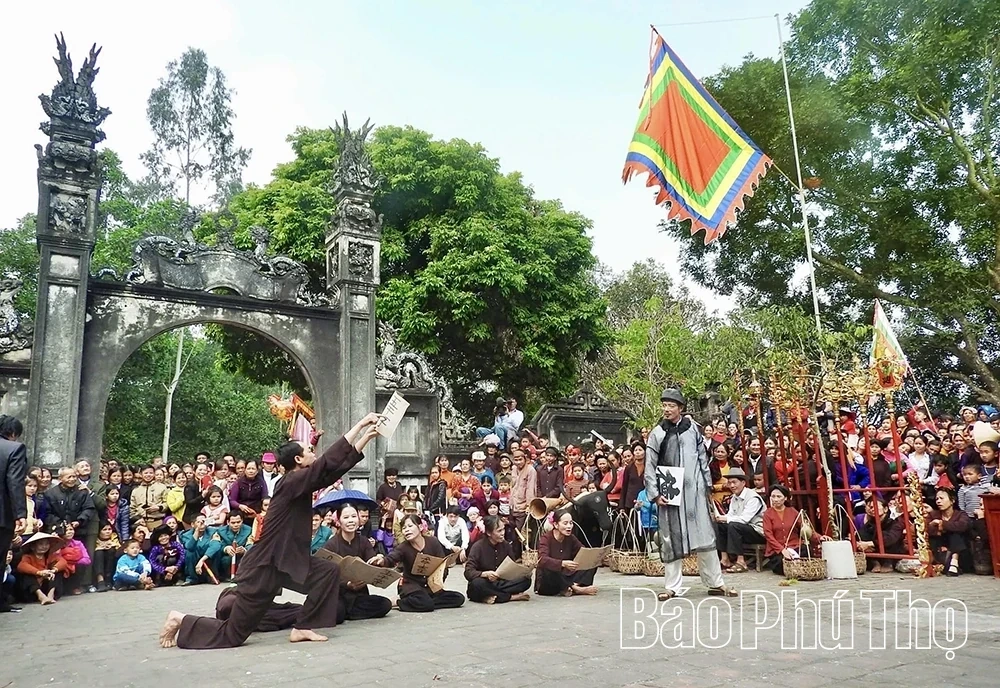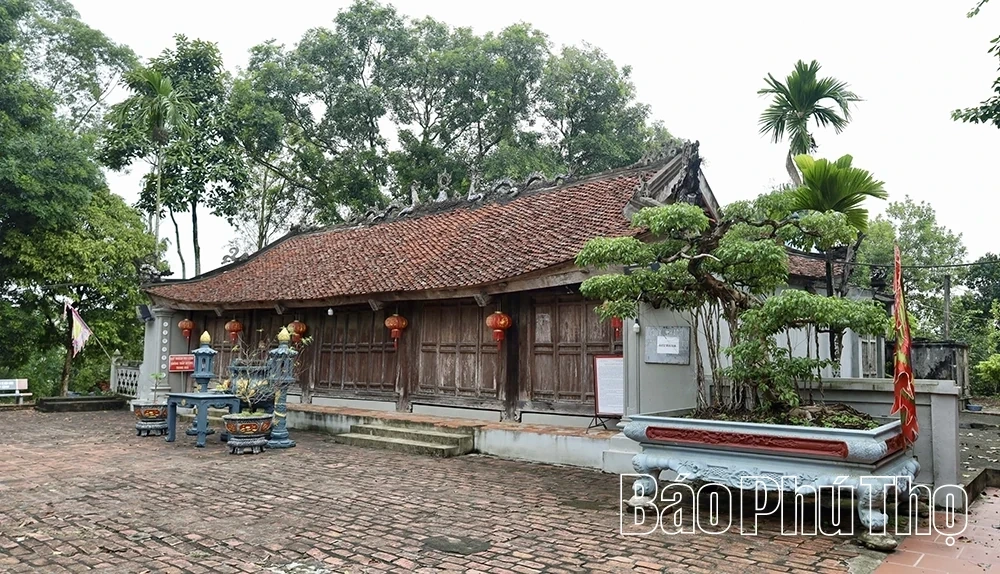{title}
{publish}
{head}
Perched atop Tram Linh Hill, Quoc Te Temple in the former Di Nau Commune — now Tho Van Commune — has long been regarded as a solemn and renowned spiritual destination for the people of Phu Tho.

According to local legend, Quoc Te Temple was built to honor the generals of the Hung Kings era who defended the nation against foreign invaders. Through centuries of history, the temple has been preserved and restored by local residents, becoming a sacred symbol of the Vietnamese tradition of gratitude toward one’s ancestors. Notably, the Ministry of Culture, Sports and Tourism has recognized the temple as a National Historical Site, underscoring its profound historical and spiritual significance.
Legend has it that Quoc Te Temple was established in 258 BCE and served as an important venue for the procession of deities, the performance of the folk play “Bach Nghe Trinh Lang,” and the traditional game “Cuop Ken,” all held annually on the fourth day of the first lunar month.

The folk play “Bach Nghe Trinh Lang” is a humorous performance dating back to the Hung Kings period, depicting various lively yet labor-intensive occupations such as plowing with buffaloes, transplanting rice, carpentry, painting, teaching, and scholars preparing for examinations. Following the performance, villagers stage the “Cuop Ken” ritual. The “ken” tree is a young bamboo stalk adorned with 18 “no” and 18 “nuong,” symbolizing the fertility beliefs of ancient agricultural communities.
According to tradition, on the main festival day, young men from the surrounding area gather in the temple courtyard to participate in “Cuop Ken,” a ritual representing the act of seizing the blessings of heaven and earth. Locals believe that whoever captures the “ken” will enjoy good fortune, abundant harvests, and family prosperity. The festive atmosphere — filled with drumbeats, cheering, and vibrant energy — creates a vivid cultural tableau rich in national identity.

Beyond celebratory joy, the festival also serves as a moment of communal bonding, where generations of Di Nau residents come together to honor their ancestors and revisit the cherished traditions of their homeland. These cultural values have been preserved through countless generations and remain a source of pride for the local community. Most notably, the Cuop Ken Festival of Quoc Te Temple has recently been recognized by the Ministry of Culture, Sports and Tourism as a National Intangible Cultural Heritage.
Vinh Ha

baophutho.vn In the traditional cultural space of the Muong people, the hearth is not merely a place for cooking or warmth; it is the sacred heart of every...

baophutho.vn The Tro Tram Festival (also known as the Linh Tinh Tinh Phoc Festival), held on the 11th and 12th days of the first lunar month in Phung Nguyen...

baophutho.vn On February 26 (the 10th day of the first lunar month), Mai Ha Commune solemnly and joyfully organized the 2026 Xen Muong Festival. Attendees...

baophutho.vn Hung Lo Ancient Communal House

baophutho.vn On the morning of February 28 (the 12th day of the first lunar month, Year of the Horse), Ms. Phung Thi Kim Nga — Member of the Provincial...

baophutho.vn On February 27 - 28 (the 11th and 12th days of the first lunar month, Year of the Horse), Hy Cuong Commune solemnly organized the restoration...

baophutho.vn Unique culinary culture of ethnic communities

baophutho.vn The festival takes place at the Dan Tich Dien historical site (now in Viet Tri Ward)—a location associated with the legend of the Hung Kings...

baophutho.vn The legend of the Lady of the forest of Tam Dao

baophutho.vn On February 24 (the 8th day of the first lunar month, Year of the Horse), the People’s Committee of Kim Boi Commune solemnly held the opening...